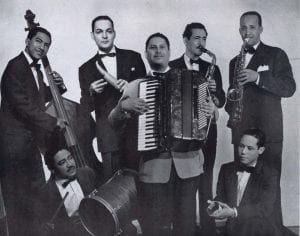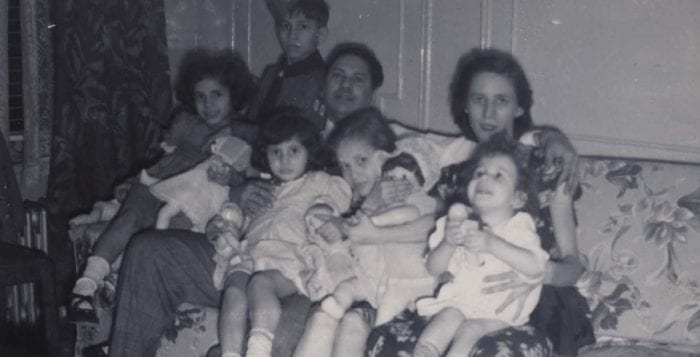When Vivian Viloria-Fisher first ran for Suffolk County legislator on the Democratic ticket, during newspaper interviews she felt it was important to talk about her Hispanic heritage.

“It was 1999 and there weren’t that many Latinos here at that time, and every time you read about a Latino, they were talking about someone poor or someone who was in trouble, and I wanted to be a role model,” Viloria-Fisher said. “I wanted kids to see that there are successful Latinos in Suffolk County.”
After she was elected, she took things a step further. While she ran the first time only using her married name, due to being registered to vote that way, she said after winning she decided to hyphenate, feeling it was important to include her maiden name because it was part of her identity.
During National Hispanic Heritage Month, Sept. 15 through Oct. 15, the former legislator looked back to her own heritage and was willing to give advice to young Latinos.
More than a former elected official who fought for protections for the environment and immigrants, she is the daughter of a bandleader who was at the forefront of the merengue movement in the United States during the 1950s.
Viloria-Fisher was born in Santo Domingo, Dominican Republic, in December 1947. At the time, the island’s capital was called Ciudad Trujillo after the dictator Rafael Trujillo. Three months after she was born, her family fled to New York City to escape the tyrant’s regime.
Her father, a merengue bandleader named Angel Viloria, and his family had a music business in the Dominican Republic. Trujillo made himself wealthy by stealing money from different businesses, she said, and when her father spoke up, things weren’t safe for her family.
The Vilorias moved to New York, the birthplace of her mother, Mary. Viloria-Fisher’s mother was a daughter of a Marine of Irish and Scottish descent who was stationed in the Dominican Republic. It was there that he met the former legislator’s grandmother, and they moved to New York. However, when Viloria-Fisher’s grandparents separated, her grandmother moved her children back to the Dominican Republic.
In New York, Viloria-Fisher said her father did everything to earn money from teaching piano lessons, tuning pianos and playing any gigs that came his way.
“He did everything he had to do to make a living which artists have to do,” she said.
Soon after they landed in New York, her father and his band hit it big with hits such as “Palo Bonito (La Cruz)” and “Compadre Pedro Juan.” Angel Viloria y su Conjunto Típico Cibaeño released three albums in two years, while performing in New York City. During the summer months, the band would also play in the Catskills. She said while her father and his group would wear suits when performing in the city, she remembers when they were upstate they would wear the ruffle shirts that many associated with Latin music.
Back on the island of the Dominican Republic, Trujillo wouldn’t let Angel Viloria’s music be played even though he gifted the musician with an accordion before he left, to paint a picture of goodwill. Viloria-Fisher said because money was tight, her father used the accordion throughout his career.
She said she remembers jam sessions in her childhood apartment where a young visitor was Tito Puente, who became known as the “King of Latin Music” with international fame. When she was 6 years old, many merengue and salsa artists held a show for her father at New York City’s Palladium in July of 1954 before he headed to Puerto Rico as a headliner at the Caribe Hilton in San Juan.
“They never thought they would never see him again,” she said.
“I wanted kids to see that there are successful Latinos in Suffolk County.”
— Vivian Viloria-Fisher
It was during his trip to Puerto Rico that Angel Viloria died at 41. While the family was told he died of a blood clot, due to his brother being found dead in a river in the Dominican Republic — Trujillo’s calling card — it was believed that Viloria-Fisher’s father was killed by the dictator as well.
“It was really tough,” she said. “There was always a kind of a whispered suspicion that Trujillo had something to do with it.”
After her father’s death, her mother began to work. Due to the nuns at school requiring her and her siblings to speak English, and her mother needing to improve her language skills, her mother insisted they speak only English at home. However, Viloria-Fisher grew up listening to her father’s and other Spanish-language music and developed a talent for speaking foreign languages.
Her ear for languages served her well as she went on to teach English and Spanish in local schools, including Advanced Placement Spanish in the Three Village Central School District for 12 years. She later went on to become chair of the district’s foreign language department. A legacy left behind at Ward Melville High School is the Spanish Honor Society being named the Angel Viloria Chapter.
“I was very proud of that because the name has to qualify as being culturally significant in order to name the chapter after someone,” Viloria-Fisher said.
Today, Viloria-Fisher, who has been married to her husband, Stu, for 36 years, has five children and five grandchildren. Among the photos and mementos she shares with them, including a letter from her father to her mother when he performed in the Catskills, is her dad’s accordion displayed on a shelf in her home. The instrument was pawned many times by her mother, Viloria-Fisher said, whenever money was tight in the early days. However, her mother was always able to buy it back.
Viloria-Fisher served the 5th District in the county legislature from 1999 to 2011 and was deputy presiding officer for six of those years. As the first Latina in a Suffolk County legislature seat, Viloria-Fisher has advice for young Latinas who may want to run for elected office.
“Don’t hide who you are,” she said. “Let people know who you are, but go beyond identity politics.”





